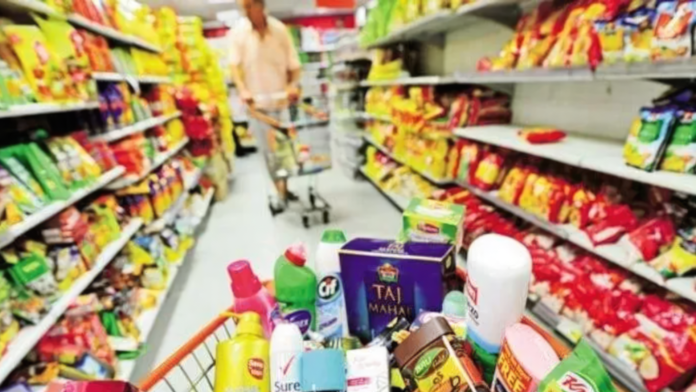Consumer goods firms have indicated that unpredictable monsoon patterns and a devalued rupee could result in elevated prices of essential products during the approaching festive period. The focus has shifted towards the performance of the monsoon in the remaining weeks of the June-September rainy season, with increasing worries about the potential influence of El Nino.
Based on data from the India Meteorological Department, during the current southwest monsoon season from June 1 to August 22, a total of 270 districts experienced insufficient rainfall, with an additional 19 districts facing significant deficits. These districts are predominantly situated across West Bengal, Odisha, Jharkhand, Bihar, Uttar Pradesh, Madhya Pradesh, Chhattisgarh, Maharashtra, Telangana, and Kerala.
“While we don’t see inflation as a big concern, patchy monsoons could impact some amount of consumer demand in the upcoming festive season, specially in rural markets. Shortfall in rain directly impacts crops, and that dampens consumer sentiment. We are hoping the deficit in rainfall will reverse in the coming weeks,” said Krishnarao Buddha, senior category head, marketing, at Parle Products, India’s largest biscuits maker.
In the past month, the costs of basmati rice have surged by 7-8%, following the government’s decision to prohibit the export of raw, white non-basmati rice.
Read More: India prohibits non-basmati white rice exports amidst supply concerns
“Exports of basmati are witnessing a surge post banning of non-basmati rice resulting in prices moving up. Now if the monsoon is erratic, then it will put further pressure on the overall availability of rice. The lengthy dry spell could impact the domestic soya bean crop, a major source of soybean oil,” said Angshu Mallick, managing director of Adani Wilmar, which sells the Fortune brand of products.
The depreciation of the rupee in comparison to the dollar has compounded the challenges for imported essential goods such as edible oils. Mallick mentioned that should the rupee continue to decline, the company will need to assess whether passing on the heightened cost of imported edible oil to customers is necessary.
Atul Garg, the managing director of GRM Overseas, noted that while rice cultivation gained momentum during the June-July period thanks to a revived monsoon, inconsistent rainfall in the subsequent period has adversely affected rice production. This, in turn, is anticipated to have a lasting influence on the pricing of essential consumer goods.
“Given the prevailing scenario, consumer staples prices are likely to remain elevated for a few more weeks,” Garg said.
In July, consumer inflation surged to a peak of 7.4% within a year, surpassing the Reserve Bank of India’s upper limit of 6%, primarily due to elevated food expenses.
Sraboni Haralalka, executive director of Wodehouse Capital Advisors, said, “Besides the monsoon, RBI’s policy statement also showed that firms expect inflation to trend upwards. In short, the economy is not yet past the point where inflation is no longer a threat to macroeconomic stability.”



